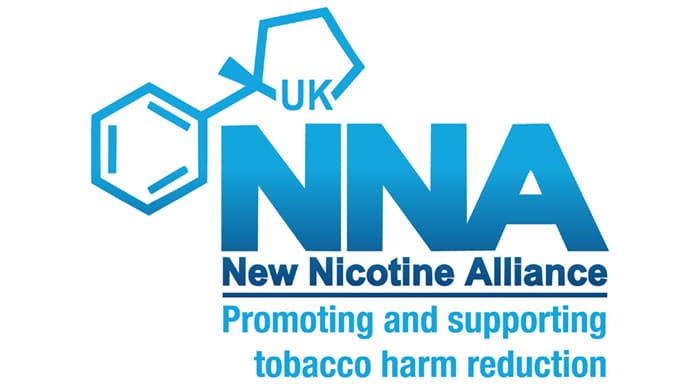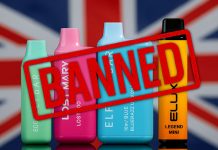The New Nicotine Alliance (NNA) have published their response to the announcement of a UK Vape tax in last week’s Spring Budget. I have copied and pasted their response in full below.

The Chancellor’s vape tax is wrong in principle and childlike in application
Created: 11 March 2024
It is difficult to know where to start describing the fundamental flaws behind the new vape tax proposal announced in last week’s budget.
UNDERMINES THE GOVERNMENT’S SWAP TO STOP CAMPAIGN
There is a complete lack of joined-up thinking in the government spending tax receipts on encouraging smokers to quit by handing out one million free vapes, only to then disincentivise those who take up the offer by applying heavy duties to the liquids they need to actually use them. The proposed framework reveals these clear informational problems across government and a fundamental misunderstanding of the realities of vaping.
MISUNDERSTANDS SCIENCE
The government seems preoccupied by what the nicotine liquid equivalent of a cigarette is, whereas it is irrelevant how much nicotine a vape contains compared with nicotine in a cigarette because the products are completely different. Nicotine is not the element that causes the death and disease, it is the combustion. As Action on Smoking and Health explains, “puffs on vapes ARE NOT equivalent to puffs on cigarettes.”
CHILD-LIKE ASSUMPTIONS
To say the proposals are ill thought-out would be an understatement. The public should expect its government to investigate a policy area comprehensively before proposing punitive taxation which imposes significant costs on people who have quit smoking exactly as they have been encouraged to do by the NHS. It has not been done in this case.
Instead, the documents published to back up the imposition of a new vape tax are notable for being almost childlike. There is a non-existent appreciation of the difference between content, consumption, and absorption of nicotine.
IPSOS POLL CLAIM HAS NO FOUNDATION
For example, an IPSOS poll commissioned in November but only published on the day of the budget announcement makes the claim that “The average (mean) strength of nicotine used amongst current vapers was reported to be 10mg per ml (just under the strength of a typical cigarette).”
This definition has never been used before; it is not recognised in any literature on the subject. Indeed, the Tobacco and Related Products Regulations (2016) (TRPR) is the mechanism by which the government transposed regulations from the EU’s Tobacco Products Directive (2014) (TPD) into UK law.
Article 18 of the TPD states that, “[n]icotine-containing liquid should only be allowed to be placed on the market under this Directive, where the nicotine concentration does not exceed 20 mg/ml. This concentration allows for a delivery of nicotine that is comparable to the permitted dose of nicotine derived from a standard cigarette during the time needed to smoke such a cigarette.”
The maximum nicotine limit allowed in vaping liquids in the UK is set at 20mg/ml, to precisely align with the EU’s definition of what they consider to be equivalent for one cigarette. Yet IPSOS has conjured up an entirely new level and does not cite any source for it.
The best we can assume as to how this level was decided is that cigarettes are limited to 12mg of nicotine content and so that is what they have gone with. It is the simplistic thinking you would expect from an increasingly misinformed public rather than a government department, but this ignorant interpretation has been accepted without question.
The EU’s definition itself was flawed by comparing what comes out of a cigarette with what goes in to an e-cigarette. They based their crude assessment on a study in 2014 which discussed nicotine absorption, the author of which wrote to the EU to complain that they had misrepresented his research and that “20 mg/ml e-liquid provides less than one-third of the nicotine delivered by one tobacco cigarette.”
THE TAX ON VAPING PUNISHES QUITTING MORE HARSHLY THAN CONTINUING TO SMOKE
So, we now have government legislating to apply a tax on vaping liquid at least six times harsher than they do for cigarettes.
Best estimate from that research was that nicotine absorption after smoking for 5 minutes is between 185% and 286% higher than the vaping devices tested after 5 minutes. There is no recognition of that science in the government’s facile justification of the vape tax. Applying duty on the contents of vape liquids and cigarettes, rather than the absorption of the products, is scientifically and morally illiterate.
In his speech, Jeremy Hunt claimed that: “Because vapes can also play a positive role in helping people quit smoking, we will introduce a one-off increase in tobacco duty at the same time to maintain the financial incentive to choose vaping over smoking.”
He has done nothing of the sort. The public consultation document released alongside the budget announcement states that users of stronger liquids (≥11mg/ml) will face a 143% price increase. Weaker liquids (<11mg/ml) will go up by 98%, and nicotine-free liquids by 48%.
The increase in combustible tobacco duty, by comparison, is around 2.5%. To put that into context. As a result of the budget, a 20 per day smoker will take 21 days to pay the extra duty that a standard vaper using 20mg/ml liquid will pay in 7 days. The Chancellor has considerably reduced the financial differential between smoking and vaping.
THE SMOKEFREE 2030 GOAL WILL BE UNATTAINABLE
The only result of this will be a significant deterrent to smokers who are considering switching to vaping, an increase in sales of illicit products, and relapse by many back to smoking cigarettes. The government’s Smokefree 2030 target is now effectively dead.
The Chancellor’s announcement cloaks itself as a health policy, and yet it shows no sign that anyone with any knowledge of smoking, vaping, nicotine or health has been consulted in its design.
The government seems overly concerned about nicotine addiction, without any appreciation that it is an entirely different thing to harm. Even if that is the case, the proposal to tax non-nicotine products which, by definition, cannot be addictive makes no sense at all.
The consultation document claims that one purpose of the tax is to “encourage consumers to choose lower strength or nicotine-free vaping products over higher strength ones due to the harms from nicotine addiction.”
This is so absurd as to be laughable. People using lower strengths use higher volumes to take in the nicotine they want. Higher volumes mean more energy and potentially more exposure to contaminants and thermal decomposition products. The government’s infantile understanding of the policy area and obsession with nicotine (which is not the harmful element of combustible tobacco use) is driving consumers to increase potential harm. Those drafting the documents could have avoided such a schoolboy error by Googling “nicotine titration” because it is clear they have never heard of it.
THE GOVERNMENT’S STRATEGY WILL COST LIVES
It is doubly counterproductive because stronger liquids will tend to be those used by people starting to vape who will now be punished at the highest level. Higher strength liquids will also be used long-term by people with poor mental health to stay off cigarettes – or at least they would have done without this new interference in what showed promise in saving the lives of people with mental health issues. The Chancellor’s insistence that “vapes can also play a positive role in helping people quit smoking” is shown to be hollow when he has erected the greatest financial barrier to the products which can most effectively play that positive role. This, after the government has also vowed to ban single use vapes which have led to the most significant declines in smoking prevalence ever seen in this country, and despite pleas from public health organisations not to do so.
SUBMIT TO THE CONSULTATION
These mistakes could have been avoided if the government consulted industry and consumer representatives who could have quickly pointed out the flaws. However, it has not done so, instead cobbling together an incoherent mess of proposals which can only do harm.
Despite the proposals – and the consultation document – being puerile, naïve and incredibly shallow, the NNA would strongly suggest that all our supporters, consumers, and others who understand harm reduction better than the government’s woeful attempt, make a submission.
Many have suggested that the Chancellor has proposed this tax purely as a cynical tax grab. We will be charitable and hope it is a genuine mistake driven by bad advice and a lack of understanding rather than prioritising revenue generation to gain election votes over public health.
With your help, maybe we can highlight to government that these comical set of proposals are an embarrassment and should be revisited. The NNA will be submitting a comprehensive consultation response in due course and will guide our followers to do the same.





